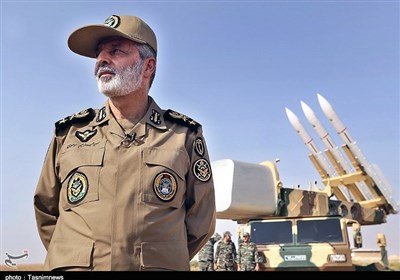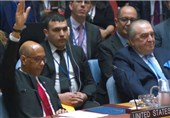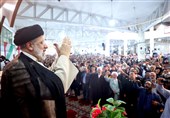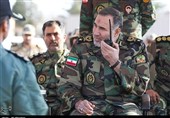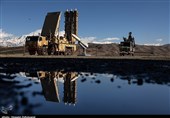Moon: Two Koreas May Exchange Military Information, Observe Each Other's Drills
TEHRAN (Tasnim) – South Korean President Moon Jae-in expressed anticipation Wednesday that the two Koreas will exchange military information and observe each other's exercises if their existing accords on building mutual confidence are fully implemented.
He put forward a two-track approach to reducing border tensions on the peninsula: through denuclearization as well as via the disarmament of conventional weapons. He was taking part in a joint written interview with Yonhap News Agency and six major foreign news agencies, days ahead of the Group of 20 summit in Japan and US President Donald Trump's visit to Southeast Asia.
The two Koreas signed a comprehensive military agreement last September during Moon's visit to Pyongyang for his third summit with the North's leader, Kim Jong-un.
They have "completely" halted hostile acts along their border, pulled out guard posts from the Demilitarized Zone (DMZ), agreed on the joint excavation of war remains and endeavored to establish joint use of the Han River estuary.
The liberal president described the measures as "rudimentary."
"If the inter-Korean agreement in the military domain is properly implemented, it will allow us to proceed to the stage of further enhancing transparency concerning military postures by exchanging pertinent information through the inter-Korean joint military committee and observing military drills and training," Moon said, revealing his mid-term vision for the Korea peace process.
What's also possible in tandem with progress in denuclearization is to "advance to the point of disarming threatening weapons such as the long-range North Korean artillery targeting our capital, Seoul, and the short-range missiles that both Koreas possess," he added.
He considered faithfully implementing the inter-Korean military agreement very important for the denuclearization process itself.
"It dramatically reduces the possibility of an accidental military skirmish between the two Koreas, thereby creating an environment conducive to dialogue concerning denuclearization," Moon said.
He also raised the need for reactivating inter-Korean economic projects, such as the Kaesong industrial park, once international sanctions on Pyongyang are lifted someday.
"For the proper development and elevation of inter-Korean relations, various economic cooperation projects have to ensue," he pointed out. "To this end, international economic sanctions must be lifted, and there has to be substantive progress in North Korea's denuclearization before sanctions can be removed."
He stressed all the ongoing inter-Korean projects have been carried out in compliance with UN Security Council resolutions "without a single violation."
Asked whether South Korea "still" thinks the closure of the Yongbyon complex can be traded for the resumption of operations at Kaesong and tours to Mount Kumgang, Moon said he has never said so.
"I've never contended that the resumption of inter-Korean economic cooperation projects had to be exchanged for the dismantlement of the North's Yongbyon nuclear complex," he said.
Joint ventures between the two Koreas are an attractive incentive for the communist North, if it seeks a bright future by abandoning nuclear arms, and they will help reduce the financial burden of the international community in supporting the nation, according to Moon.
"This is why I proposed to President Trump that he actively utilize inter-Korean economic cooperation as one of the corresponding measures to North Korea's substantive denuclearization steps," he added.


